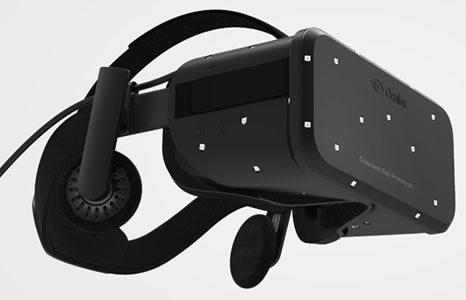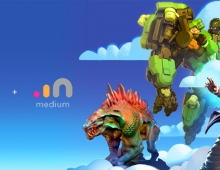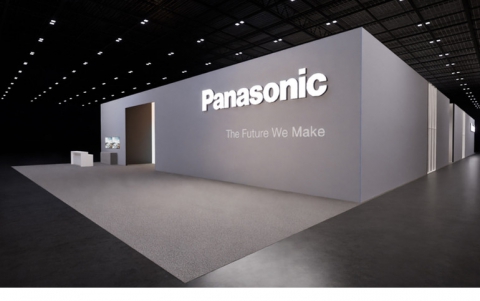
New Oculus 'Crescent Bay' Headset Announced
Virtual reality company Oculus VR announced the 'Crescent Bay', a new prototype version of its flagship Rift headset on Saturday, which boasts an updated display, 360-degree head tracking, expanded positional tracking volume, improved weight and ergonomics, and optional integrated audio. "This is a step along the path, much like [previous Rift prototype] Crystal Cove," Oculus VR CEO Brendan Iribe said at the company’s Oculus Connect developer conference in Hollywood, California. “But it’s a massive leap."
Crescent Bay is the latest prototype headset on the path to the consumer version of the Rift. It features new display technology, 360-degree head tracking, expanded positional tracking volume, dramatically improved weight and ergonomics, and high-quality integrated audio.
These enhancements allow for a level of presence that’s impossible to achieve with the previous prototyope, the DK2. I
Along with the new hardware, Oculus created original demo content, designed to give you a glimpse into the level of VR experience you can expect to see come to life in gaming, film, and beyond.
Unreal Engine 4 (UE4) continues to be one of the best engines for virtual reality development. Epic has dedicated resources to optimizing UE4 for the Rift and making it easy to build awe-inspiring VR experiences.

Almost every major Oculus prototype announcement has been accompanied by a new Unreal Engine demo, like Elemental VR, Strategy VR, and Couch Knights. For Crescent Bay, Epic put together an brand new experience called Showdown.
Everyone at Oculus Connect will be able to try Showdown running on Crescent Bay.
Oculus is also partnering with Unity to make Oculus an official platform and build target. This means that Unity will now fully support Oculus and the Rift with a dedicated add-on that includes stereo imaging optimizations, 3D audio support, and other features specifically for virtual reality.
Best of all, Oculus will be now be supported in both the Free and Pro versions of Unity.
Along with the integrated audio in Crescent Bay, Oculus is working to build the hardware and software that developers need to create high-fidelity VR audio experiences for the Rift.
People locate objects in the world using cues that arise from the interaction of sound with the scene, combined with the body of the listener (HRTFs) and head tracking. A great audio engine for VR has to reproduce these cues to fully convince the human perceptual system.
As part of our audio initiative, Oculus has licensed RealSpace3D’s audio technology, a software stack developed over 10 years based on technology from the University of Maryland. RealSpace3D’s tech enables high-fidelity VR audio with a combination of HRTF spatialization and integrated reverberation algorithms.
Oculus also made the original Oculus Rift DK1 peripheral's code as well as engineering schematics open source and available for download. The release allows programmers of all stripes to tinker with the code, and potentially develop compatible clone hardware for the peripheral.
Other companies have announced competing devices, including Sony's PlayStation video game console division, which created a VR device called "Project Morpheus." Others, such as Google and Technical Illusions, are creating their own products, as are smaller companies creating headset units that work with smartphones and tablets.
Oculus introduced the first version of its headset, called the "Rift," in 2012, when it launched a Kickstarter campaign announcing it was creating development prototypes that promised high-quality virtual reality gaming experiences.
Initial versions of the Rift were built using with screens and other parts from smartphones. Over the last two years, Oculus further refined its device with high-definition graphics and the ability to track a customer's head in any direction with the help of a separate camera.
Oculus sells its latest prototype for $350, not including the cost of a computer to work with the headset. Oculus has also announced a partnership with handset giant Samsung to sell a version of its technology that works with mobile devices.
The company hasn't yet said when the final version of its Rift headset will be made available.





















